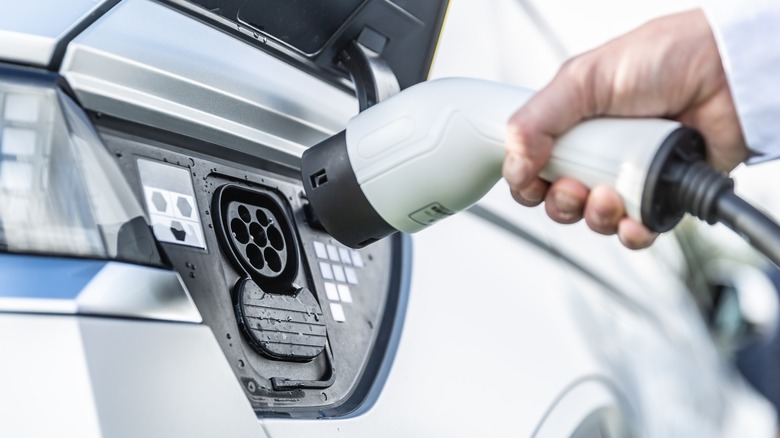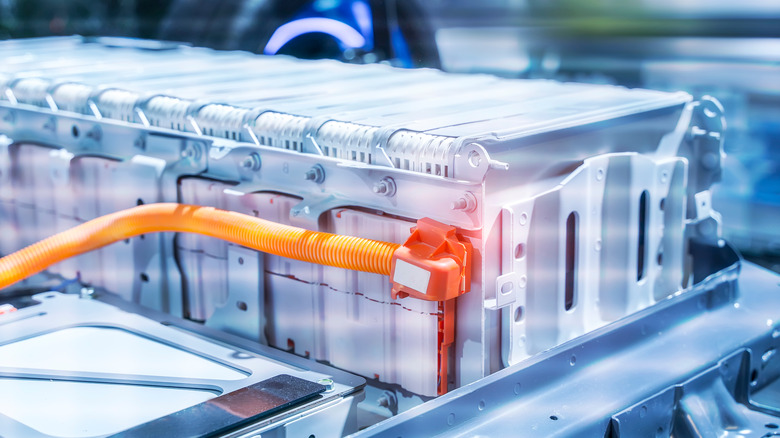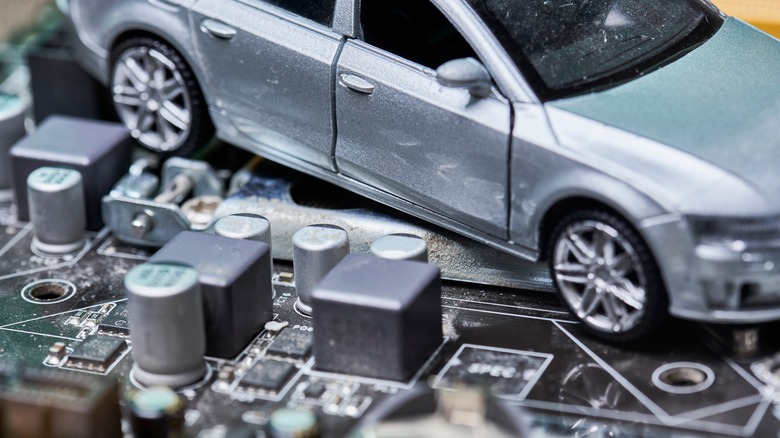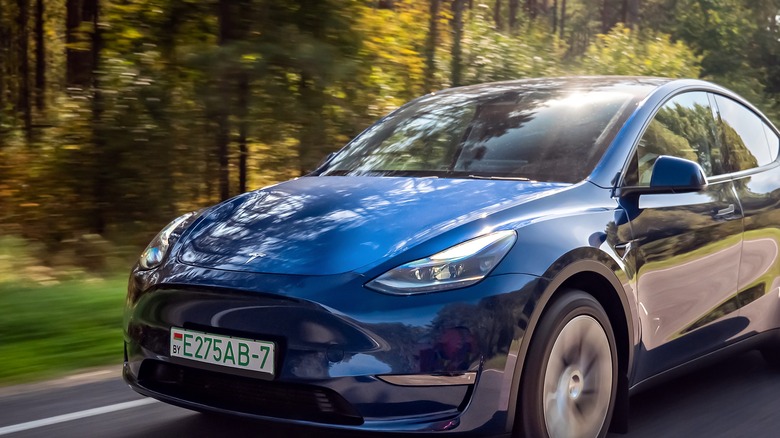5 Big Reasons You Don't Want To Buy An Electric Car Just Yet
No one can deny that electric cars are the future of transportation. They're quieter, smarter, roomier, and sleeker in design than your traditional car. This is why it's no longer surprising that millions of people are switching to EVs.
The UBS Investment Bank even predicts that by 2040, all new vehicles sold in the market will be electric. This figure doesn't seem far from reality, as according to the International Energy Agency, electric car sales have skyrocketed in the past year with at least 6.6 million units sold in 2021. This is only estimated to climb through 2022, slowly making electric cars more prevalent than ever before.
But while they are all the rage right now, especially with gas prices on the rise, you might want to hold off buying an electric car. Sure, you can save on gas and help the environment heal, but there are various reasons why you should stick to your traditional vehicle for now.
Limited charging infrastructure available
While electric cars don't need gas to operate, they are still largely reliant on their own version of a gas pump: a charging station. Currently, there are only about 45,000 charging stations in the entire United States (via the U.S. Department of Energy). This may already seem like a lot but not when compared to 145,000 gas fueling stations across the country (via American Petroleum Institute).
This significant lack of charging stations is one of the reasons you might want to wait before getting that Tesla. After all, you don't want to go on a road trip just to get stuck in the middle of nowhere with no chargers in sight.
The good news is that President Biden's administration is taking a massive step toward increasing the number of charging stations in the country to 500,000 (via The White House). He plans to create a national charging network that will hopefully spur the adoption of electric vehicles.
Improving battery technology will bring down car prices
At the moment, electric vehicles are still far more expensive than gas-powered cars. According to Kelley Blue Book, a new EV cost an average of $66,997 in June 2022, while non-luxury cars only cost $43,942 in the same month. These sticker prices are exactly what keep 48% of shoppers away, as reported by Autolist's 2022 Electric Vehicle Survey.
However, electric cars' upfront cost is expected to drop sooner or later. This is thanks to improving EV battery technology. Apparently, approximately 30 to 40% of a car's cost is due to the batteries alone (via Institute for Energy Research). That said, the introduction of new and cheaper kinds of batteries, such as solid-state, cobalt-free manganese-based, and lithium-metal batteries, will help bring car prices down.
The dropping cost of lithium-ion batteries, which are currently used in most EVs, can also contribute to the reduction in car prices. As IHS Markit reported, a lithium-ion cell could drop to an average of $73/kWh by 2030, a massive jump from this year's $160/kWh.
The pandemic and global chip shortage made car prices skyrocket
As the electric vehicle industry matures and more units are sold, consumers expect their prices to decline. However, that was not the case since the pandemic took over. It was mainly due to the global chip shortage which was brought about by the lockdowns and transportation restrictions.
Chips are significant components of cars, most especially EVs with AI capabilities. With these components out of stock, manufacturers are experiencing a hard time producing the same number of units as they did before. Add this to the fact that 52% of consumers are now interested in buying an electric vehicle after the pandemic, stretching manufacturers thinner (via EY).
Unfortunately, global consulting firm AlixPartners expects the semiconductor shortage to persist until 2024 despite the gradual recovery of the industry this year. Until then, we likely won't see drastic reductions in EV prices.
Only a few auto technicians can service electric vehicles
When you first considered buying an electric car, the first things you probably thought about were how far you can drive it before charging, how many charging stations there are in your area, and how much it will cost you in the long run. However, there is another thing that you and many other consumers typically forget to factor in: maintenance and repair.
While routine maintenance is less of an issue with electric cars due to their fewer mechanical parts, you will still need to take it in for maintenance every couple of years. That said, knowing if you're anywhere near a service center is of utmost importance.
Unfortunately, that's easier said than done as there is currently a limited number of car technicians trained to work on EVs. The National Institute for Automotive Service Excellence reports having over 229,000 service professionals, but only 3,082 are light-duty hybrid/electric vehicle specialists.
In an effort to bridge this gap, Indiana-based Purdue University and Ivy Tech Community College are collaborating to develop a program for training engineers and technicians to handle EVs (via International Economic Development Council). There is also a forged partnership between Boston-based Madison Park Technical Vocational High School and the Public Works Department to launch an electric vehicle maintenance program for students (via City of Boston). More programs and training like these will hopefully increase the number of EV car techs in the country.
Limited data on electric car lifespan
There have been no major issues with electric vehicles so far, and owners seem to be satisfied with their purchases. As reported in the J.D. Power 2022 U.S. Electric Vehicle Experience Ownership Study, the average satisfaction score of first-time EV users is 754 on a 1,000-point scale. Additionally, 96% of owners with over 900 overall satisfaction points said they would buy another electric vehicle in the future.
These figures are probably enough to convince you to get one for yourself, but you should probably wait a few more years before making the buy. While the average lifespan of light vehicles in the U.S. is currently 12.2 years, it's only 3.8 years for electric vehicles (IHS Markit). There is still limited data on how long electric cars will actually last, so it's probably best to hold off buying until the industry matures more.





